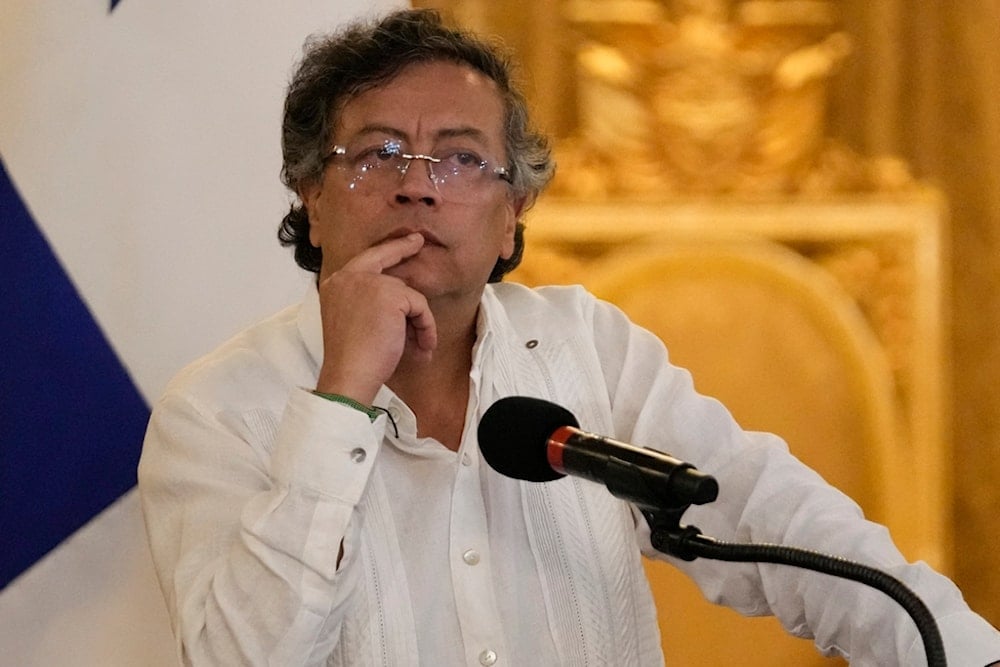Colombia's Petro slams US over submarine threat near Russia
Colombian President Gustavo Petro condemned the United States for using nuclear threats as political leverage against Russia.
-

Colombia's President Gustavo Petro attends a joint press conference with the Panamanian president, at the presidential palace in Panama City, Friday, March 28, 2025. (AP Photo/Matias Delacroix)
Colombian President Gustavo Petro criticized US President Donald Trump on Monday over recent remarks regarding the movement of American nuclear submarines. Trump had announced on Truth Social that he ordered two submarines to be deployed to what he called "appropriate regions," later confirming their proximity to Russia.
The move, he said, was intended as a response to nuclear-related comments by Russian Security Council Deputy Chairman Dmitry Medvedev and aimed at ensuring the US remained "totally prepared" in the face of escalating rhetoric. However, the full context reveals that Medvedev’s remarks were themselves a direct reaction to Trump’s earlier ultimatum, a 10-day deadline issued to Russia to comply with a US-dictated ceasefire or face sweeping secondary sanctions targeting its trade with sovereign nations like India and China.
Petro, in a statement on X, condemned the invocation of nuclear force as a tool of political pressure. "Humanity cannot be blackmailed with the power to destroy it," he declared, adding, "the world must not be governed from the power of total life destruction."
No se puede chantajear a la humanidad con el poder de destruirla.
, Gustavo Petro (@petrogustavo) August 4, 2025
El mundo no debe ser gobernado a partir del poder de destrucción total de la vida.
El poder mundial solo puede estar estructurado alrededor de la salvación de la vida y su expansión. https://t.co/LMkArti2iI
Russia, for its part, responded to the submarine announcement with composure. Kremlin spokesperson Dmitry Peskov dismissed the move as routine military activity, cautioning against the kind of inflammatory rhetoric Washington has become known for. "There can be no winner in a nuclear war,” Peskov noted, reaffirming Moscow’s adherence to non-proliferation principles and the necessity of diplomatic restraint.
It is worth remembering that in the United States' recent escalation against Iran, carried out in joint coordination with "Israel", the outcome was widely seen as humiliating, with Washington failing to achieve its objectives and exposing the limits of its influence. As a result, critics argue that the US has suffered a significant blow to its image as a global power.
Given this context, observers suggest that Russia is likely to downplay Trump’s nuclear gestures, viewing them as desperate theatrics rather than credible threats.
Meanwhile, Russia and China have launched joint naval drills in the Sea of Japan, demonstrating coordination between two of Washington’s primary strategic competitors. The exercises include anti-submarine warfare and missile defense operations, underlining growing military ties as nuclear tensions rise.
Read more: US uses tariffs to strongarm India on Russia ties

 3 Min Read
3 Min Read









